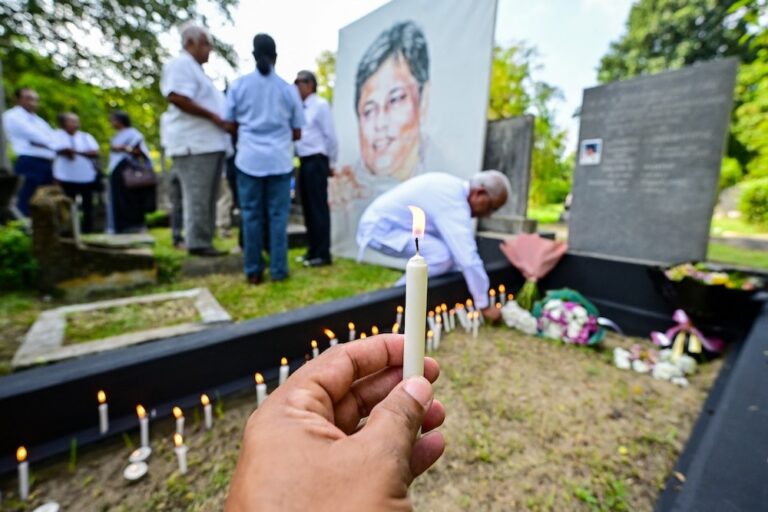(RSF/IFEX) – Reporters Without Borders condemns the government pressure that led to the debate programme “Ira Anduru Pata” being cut short as it was being broadcast live on the evening of 4 November 2008 on state TV station Rupavahini. It ended a discussion of a new broadcasting law by three guests, including Free Media Movement […]
(RSF/IFEX) – Reporters Without Borders condemns the government pressure that led to the debate programme “Ira Anduru Pata” being cut short as it was being broadcast live on the evening of 4 November 2008 on state TV station Rupavahini. It ended a discussion of a new broadcasting law by three guests, including Free Media Movement convener Uvindu Kurukulasuriya.
The presenter announced a break for advertisements after 45 minutes, but the rest of the programme, which normally lasts two hours, was suppressed. Kurukulasuriya had been criticising the government’s media policies before he was censored. It was the first time in nine years that this press freedom activist was invited to speak on Rupavahini.
This censorship came as widespread criticism forced the government to retreat on its newly-introduced Private Television Broadcasting Station Regulations. After receiving representatives of journalists’ organisations and media owners, media and information minister Anura Priyadharshana Yapa announced that implementation of the new regulations would be suspended for a month and he gave the media two weeks to submit their proposals for amendments.
Four people, including Kurukulasuriya as FMM representative, filed a petition before the Supreme Court challenging the regulations, which were published in the official gazette on 10 October without any form of prior consultation. The new rules would restrict development of privately-owned TV by increasing the government’s control over the issuing and withdrawal of broadcasting licences, which would have to be renewed annually.
Noting the government’s decision to suspend the regulations, Reporters Without Borders said: “This law is extremely dangerous for media freedom. Delaying its implementation is not enough. Its content needs to be changed radically.”


